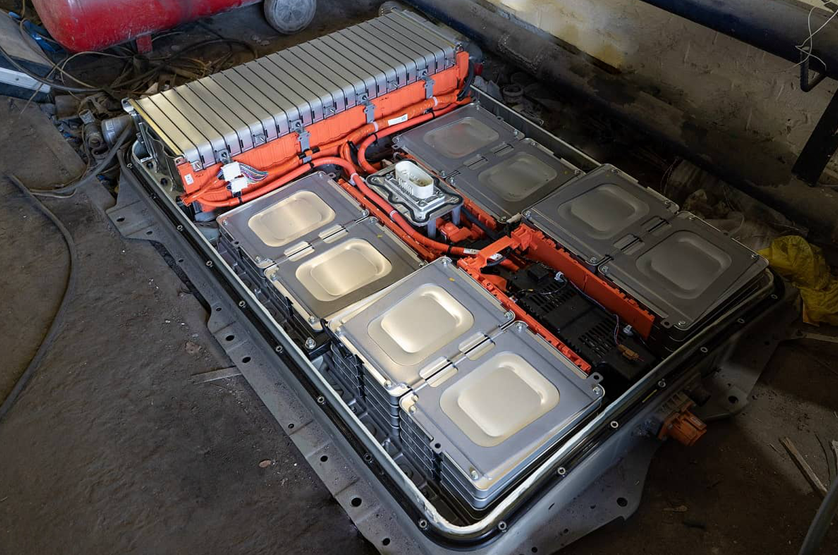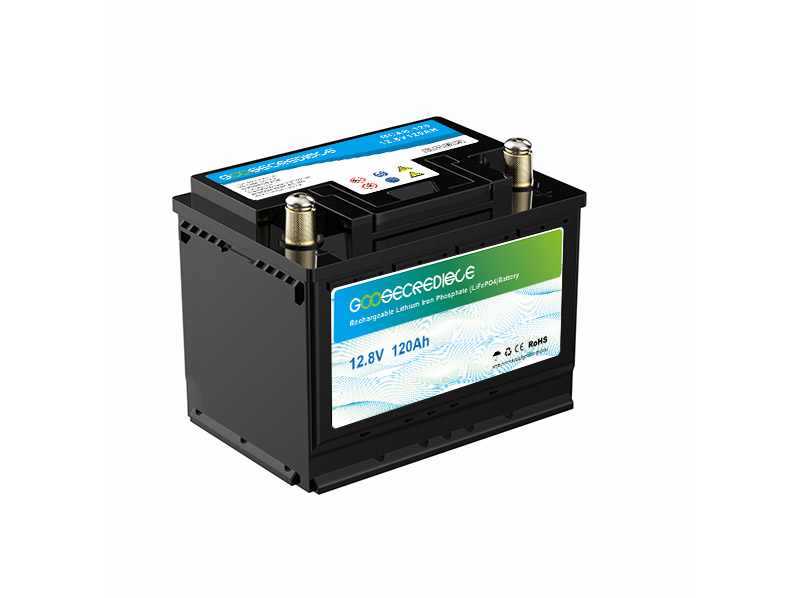إطلاق العنان للقوة: التطورات في تكنولوجيا بطاريات الليثيوم للمعدات الطبية
Introduction:
Medical equipment plays a crucial role in healthcare settings, helping healthcare professionals provide accurate diagnoses, perform life-saving procedures, and monitor patient conditions. To ensure the seamless functioning of these devices, reliable and long-lasting power sources are essential. Lithium batteries have emerged as a game-changer in the medical industry, offering significant advancements in technology that enhance both performance and safety. In this article, we will explore the advancements in medical equipment lithium battery technology and their impact on healthcare.
1. Evolution of Lithium Battery Technology:
Lithium batteries have revolutionized the power storage industry due to their high energy density, light weight, and long cycle life. Over the years, researchers and engineers have continually enhanced their design and performance, making them more efficient and reliable for medical applications. The key advancements include:
a. زيادة كثافة الطاقة: Lithium batteries now offer higher energy density, meaning they can store more energy in a smaller and lighter package. This advancement allows medical devices to become more portable and lightweight, enabling healthcare professionals to provide care in remote locations or during transportation.
b. Longer Life Cycle: The lifespan of lithium batteries has significantly improved, reducing the need for frequent replacements. With a longer cycle life, medical equipment can operate for prolonged periods without interruptions, ensuring consistent and uninterrupted patient monitoring and treatment.
c. Enhanced Safety Features: Safety is a paramount concern when it comes to medical devices. Newer lithium battery technologies incorporate advanced safety features, such as temperature and voltage monitoring, to prevent overheating and overcharging. These safety mechanisms minimize the risk of battery failure or fire, ensuring the well-being of both patients and healthcare providers.
2. Benefits in Medical Equipment:
The advancements in lithium battery technology have transformed the medical equipment landscape, offering several benefits that improve patient care and healthcare efficiency:
a. Portability and Mobility: Lithium batteries\’ compact size and lightweight nature make medical devices more portable and mobile. This enables healthcare professionals to carry essential equipment for point-of-care testing, emergency response, and remote patient monitoring. Portable devices powered by lithium batteries have become indispensable tools in ambulances, disaster zones, and rural healthcare settings.
b. Extended Device Runtime: The increased energy density and longer cycle life of lithium batteries mean medical devices can function for extended periods without the need for frequent recharging or battery replacements. This allows healthcare professionals to focus on patient care rather than managing power supply logistics.
c. Improved Performance: Lithium batteries deliver a consistent and stable power supply to medical devices, ensuring accurate measurements, precise drug administration, and reliable data collection. The stable power output prevents fluctuations that could compromise the performance of critical medical equipment.
d. Cost Savings: Longer battery life and reduced maintenance requirements translate into cost savings for healthcare facilities. The decreased need for frequent battery replacements and maintenance not only saves money but also reduces waste and environmental impact.
3. The Future of Medical Equipment Lithium Battery Technology:
The advancements in medical equipment lithium battery technology show no signs of slowing down. Researchers are continuously exploring new avenues to enhance battery performance, safety, and efficiency. Some potential future developments include:
a. Faster Charging: Researchers are working on developing lithium batteries with faster charging capabilities, allowing medical devices to be quickly powered up during emergencies or time-sensitive procedures.

b. Improved Energy Storage: The quest for even higher energy density continues, aiming to maximize the capacity of lithium batteries and extend the runtime of medical devices even further.
c. Integration with Wireless Charging: Wireless charging eliminates the need for physical connections, making it more convenient and efficient for medical devices. Integrating lithium batteries with wireless charging technology would offer greater flexibility and ease of use in healthcare settings.
d. Smart Battery Management: Advanced battery management systems can optimize battery usage, monitor performance, and predict battery health. This technology would enable healthcare providers to proactively manage battery life, ensuring uninterrupted device operation.
خاتمة:
The advancements in medical equipment lithium battery technology have transformed patient care and healthcare efficiency. The increased energy density, longer cycle life, and enhanced safety features of lithium batteries enable medical devices to be more portable, reliable, and cost-effective. As researchers continue to push the boundaries of battery technology, the future holds even more exciting possibilities for medical equipment, ensuring that healthcare providers have access to the power they need to save lives and improve patient outcomes.
-
 With the increasing demand for reliable and efficient power solutions in large-scale applications, industrial battery chargers have emerged as key players in the industry. These chargers are specifically designed to provide efficient charging and power management for a wide range of industrial applications, including manufacturing plants, warehouses, and transportation systems. In this article, we will explore the features and benefits...اقرأ أكثر
With the increasing demand for reliable and efficient power solutions in large-scale applications, industrial battery chargers have emerged as key players in the industry. These chargers are specifically designed to provide efficient charging and power management for a wide range of industrial applications, including manufacturing plants, warehouses, and transportation systems. In this article, we will explore the features and benefits...اقرأ أكثر -
 When it comes to boating, having a reliable and efficient power source is essential. A cranking battery is designed specifically for this purpose, providing the necessary power to start your boat\'s engine. In this article, we will explore the features and benefits of a cranking battery, as well as provide tips on how to choose the right one for your...اقرأ أكثر
When it comes to boating, having a reliable and efficient power source is essential. A cranking battery is designed specifically for this purpose, providing the necessary power to start your boat\'s engine. In this article, we will explore the features and benefits of a cranking battery, as well as provide tips on how to choose the right one for your...اقرأ أكثر -
 As a key component of electric vehicles, electric vehicle batteries have a significant impact on the performance, range and safety of electric vehicles. The following is a detailed introduction to some of the key technical points and performance characteristics of electric vehicle batteries: Battery Type Lithium-ion battery: The most common type of battery used in electric vehicles. Lithium-ion batteries have...اقرأ أكثر
As a key component of electric vehicles, electric vehicle batteries have a significant impact on the performance, range and safety of electric vehicles. The following is a detailed introduction to some of the key technical points and performance characteristics of electric vehicle batteries: Battery Type Lithium-ion battery: The most common type of battery used in electric vehicles. Lithium-ion batteries have...اقرأ أكثر -
 In today's fast-paced world, reliable power supply is crucial for the functioning of various electronic devices. The advancements in technology have led to the development of high-performance batteries, one such battery is the 48V LiFePO4 battery. LiFePO4 or Lithium Iron Phosphate battery is a type of rechargeable battery that has gained popularity due to its excellent performance and extended...اقرأ أكثر
In today's fast-paced world, reliable power supply is crucial for the functioning of various electronic devices. The advancements in technology have led to the development of high-performance batteries, one such battery is the 48V LiFePO4 battery. LiFePO4 or Lithium Iron Phosphate battery is a type of rechargeable battery that has gained popularity due to its excellent performance and extended...اقرأ أكثر -
 Your car starter battery is one of the most important components of your vehicle. It provides the power needed to start your engine and keep your car running. However, if your starter battery fails, you be left stranded with a car that won start. To prevent this from happening, it important to keep your starter battery running strong. Here are...اقرأ أكثر
Your car starter battery is one of the most important components of your vehicle. It provides the power needed to start your engine and keep your car running. However, if your starter battery fails, you be left stranded with a car that won start. To prevent this from happening, it important to keep your starter battery running strong. Here are...اقرأ أكثر -
 Electric vehicles (EVs) have become increasingly popular in recent years as a more sustainable and environmentally-friendly mode of transportation. One of the key components that enable the operation of EVs is the lithium battery. Lithium batteries have gained significant attention due to their high energy density and long lifespan. However, there are several advantages and challenges associated with the use...اقرأ أكثر
Electric vehicles (EVs) have become increasingly popular in recent years as a more sustainable and environmentally-friendly mode of transportation. One of the key components that enable the operation of EVs is the lithium battery. Lithium batteries have gained significant attention due to their high energy density and long lifespan. However, there are several advantages and challenges associated with the use...اقرأ أكثر -
 Introduction The world is facing a dire need to transition from fossil fuel-powered vehicles to sustainable alternatives. Electric vehicles (EVs) have emerged as a viable solution to combat environmental degradation and reduce greenhouse gas emissions. The key component driving the success of EVs is the lithium-ion battery, which provides a sustainable future for transportation. Lithium Batteries: The Backbone...اقرأ أكثر
Introduction The world is facing a dire need to transition from fossil fuel-powered vehicles to sustainable alternatives. Electric vehicles (EVs) have emerged as a viable solution to combat environmental degradation and reduce greenhouse gas emissions. The key component driving the success of EVs is the lithium-ion battery, which provides a sustainable future for transportation. Lithium Batteries: The Backbone...اقرأ أكثر

